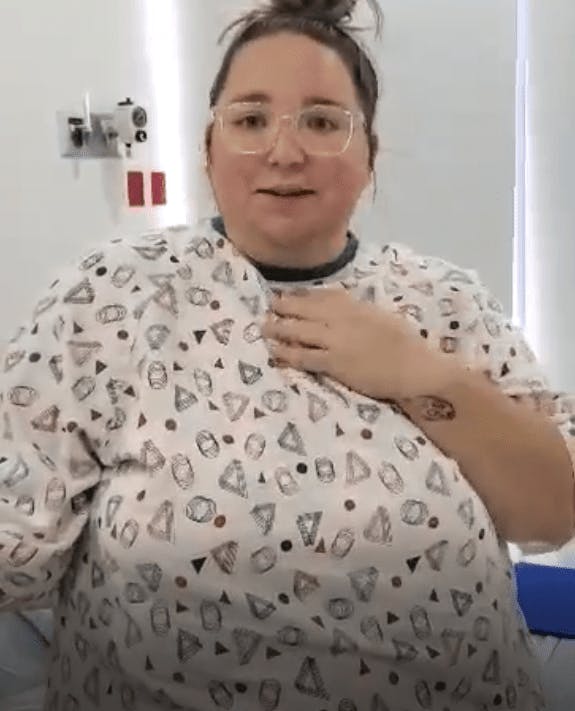Best Option for Surgery?

Anyone considering surgery to treat obesity has a dizzying array of choices. Over the last several decades, thousands of patients have undergone weight loss procedures when they haven't been successful with diet and exercise alone to lose weight. Bariatric surgery is a tool for long-term weight loss that helps resolve various health conditions like diabetes, obstructive sleep apnea, etc. Yet which one is right for you?
Weight Loss Options You Have
Standard medical advice always recommends that obese patients try diet and exercise first before considering different weight loss surgeries.
Although this path works for some, many others fail, even when weight loss medication is part of the treatment.
Why Obese Patients Fail With Diet and Exercise
Although a balanced diet and exercise are great for staying healthy and active, these tactics often don't produce durable weight loss in obese patients. Obesity is a chronic disease with biological causes and not unhealthy eating, and a sedentary lifestyle. According to a journal Diabetes & Endocrinology report, weight loss programs generally show positive results in the first few months. As much as 90 percent of patients will have weight regain and go through yo-yo dieting. The reason behind this is that the metabolic set point in the brain is faulty, requiring a reset.
Bariatric Surgeries

For the most part, bariatric surgery involves an invasive process that alters the digestive tract either through restrictive measures that create a small pouch for a stomach, or a combination of restrictive and malabsorptive measures, the latter of which alters the small intestine, so the body absorbs fewer calories. Possible procedures to consider include:
- Adjustable gastric banding, aka Lap-Band, which restricts the amount of food eaten via a silicone band around the stomach
- Sleeve gastrectomy, creating a small stomach pouch to make patients feel fuller faster
- Roux-en-Y gastric bypass, combing restrictions and malabsorption
- Single anastomosis duodenal-ileal bypass with sleeve gastrectomy (SADI-S)
- Biliopancreatic diversion, aka duodenal switch, to bypass more of the small intestine
- Vagal Blockade or vBloc
Note that vBloc, which involves implanting a pacemaker-like device that sends regular electrical impulses to the vagus nerve to signal that the stomach is full, is not yet endorsed by the American Society of Metabolic and Bariatric Surgery (ASMBS).
Non-Invasive Weight Loss Procedures
Over the last decade, advancements in medical science have resulted in several minimally invasive procedures available to obese patients who want to lose weight.
Most are not permanent, meaning that bariatric surgeons can easily reverse them, or they are only meant to be used for a short length of time.
Non-Surgical Weight Loss Procedures
Non-surgical weight loss options are generally newer techniques to help obese patients reduce their BMI (body mass index) and lose weight. Because they don't involve incisions, they are non-invasive weight loss procedures targeted toward patients who do not or cannot under major bariatric surgery for weight loss. Tijuana Bariatric Center does not offer these procedures, yet we mention them because you may come across them in your research. Our doctors believe that the best route to significant weight loss is through bariatric surgery.
ORBERA Gastric Balloon
A bariatric surgeon inserts a soft, inflatable balloon made of medical-grade silicone into the stomach using an endoscope. The deflated balloon passes through the mouth into the stomach and is then filled with sterile saline. It can stay in the stomach for up to six months. The goal of the gastric balloon is to allow patients to develop healthy eating habits while also achieving healthy weight loss. Patients feel fuller more quickly between meals while the gastric balloon is in place. Patients can expect to lose about 15% of their body weight.
OverStitch Endoscopic Suturing System
OverStitch Endoscopic Suturing is a non-surgical outpatient procedure to adjust the size of the stomach following gastric bypass. During the procedure, a bariatric surgeon inserts an endoscope into the stomach to place stitches to reduce the stomach capacity for those who have gained weight after their initial surgery.
Lipotropic Injections
Patients who struggle to shed excess weight may find lipotropic injections, composed of amino acids, helpful in losing pounds. Lipotropics optimize metabolic rates, increase liver function, and are frequently combined with a supported weight loss program.
Aspiration Therapy
This relatively new procedure removes calories from the stomach after meals. A small tube with an access port is placed into your stomach via endoscopy. Two weeks later, doctors connect the port to the skin surface, allowing you to empty about 30% of calories from the stomach after meals. Patients usually lose 16% of their body weight within a year.
Endoscopic Sleeve Gastroplasty
Patients undergoing endoscopic sleeve gastroplasty receive stitches inside the stomach to reduce volume by about 70%. The stitches last about a year before the body reabsorbs them, allowing patients to love about 20% of their body weight.
Gastric Injections
Gastric injections freeze stomach muscles to slow digestion and help patients feel fuller faster. It's targeted toward patients with more modest goals, resulting in a 5% to 10% weight loss.
Pros and Cons of Weight Loss Surgery
All surgeries come with some risk, but generally, a doctor will recommend bariatric surgery for patients with a high BMI as the health benefits will significantly outweigh potential risks and side effects. Although you'll find risk with any type of operation, surgeons recommend various types of weight loss surgery as the benefits greatly surpass the side effects. With restrictive and malabsorptive procedures like the roux-en-y gastric bypass and duodenal switch, patients have a great risk for malnutrition, but they can circumvent this problem by adding vitamin and mineral supplements to their daily diet.
Bariatric Surgery Advantages
The most significant advantage of bariatric surgery is the ability to lose weight safely over time. Other benefits of undergoing surgery include:
- Improvement and resolution of many life-threatening health conditions like type 2 diabetes, obstructive sleep apnea, kidney diseases, high blood pressure, and other problems related to obesity
- Improved self-image
- Improved cardiovascular health
- Relief from arthritis
- Better quality of life
- Improved fertility
What is the Safest Form of Bariatric Surgery?
The safest forms of bariatric surgery are restrictive surgical procedures like Lap Band and gastric sleeve, which creates a small stomach pouch that reduces the amount of food you can eat at one sitting. Surgeries that combine restrictive and malabsorptive components, like duodenal switch and roux-en-y gastric bypass, have a greater chance of post-surgery infections, leaks, and other related complications.
What is the Least Invasive Weight Loss Surgery?
Adjustable gastric banding, commonly known as Lap-Band is the least invasive bariatric operation as it doesn't involve reducing the size of the stomach or re-sectioning of the small intestine. However, adjustable gastric banding does involve the placement of an inflatable band inside patients' bodies to restrict the amount of food they eat, meaning that you will have a foreign object inside your body.
What is the Best Weight Loss Surgery for Me?
The best weight loss procedures are generally the ones that combine both restrictive and malabsorptive components. Gastric bypass surgery, duodenal switch, and SADI-S are generally considered the best weight loss procedures because patients usually have the most significant weight loss following one of these operations. What is right for one person is not suitable for the next, which is why there are several different weight loss surgeries. Bariatric surgery is not one-size-fits-all. Discussing the pros and cons of each procedure with your doctor will help determine which one is the best for your health.

